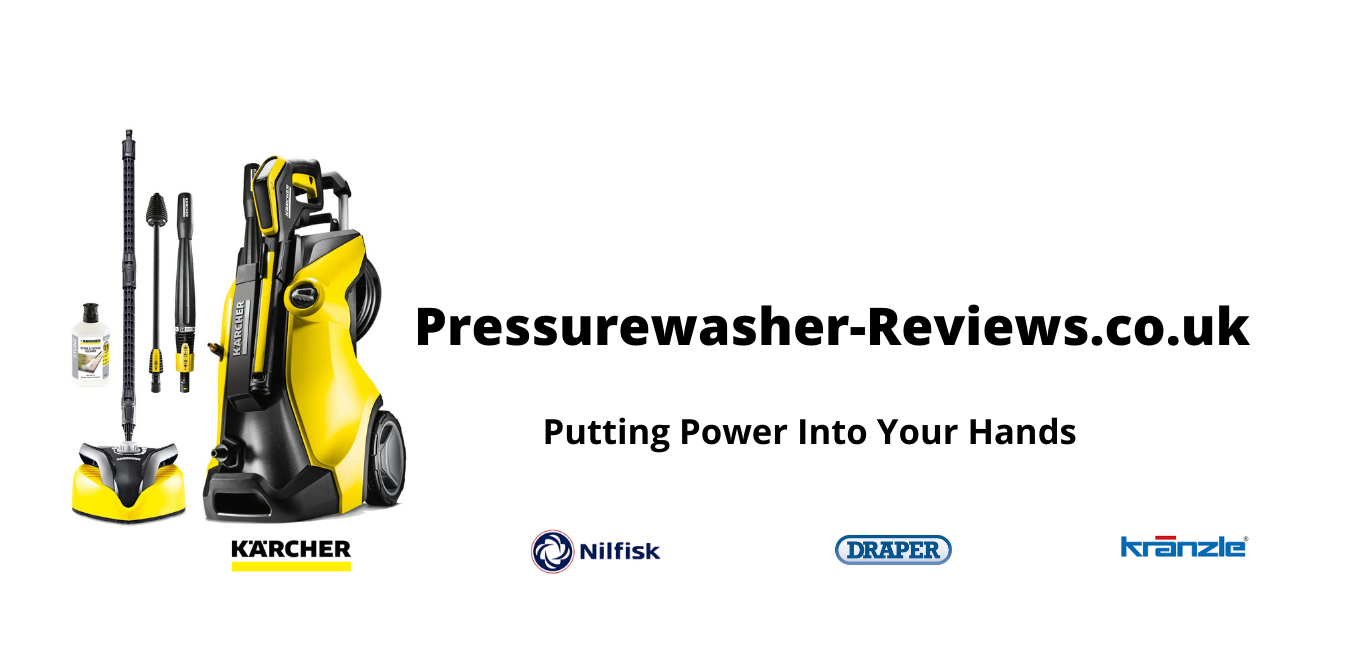In this expanding FAQ Pressure Washers post you’ll get answers to any pressure washer questions that you may have.
Although a pressure washer is a simple piece of equipment buying your first one can be daunting.
It is recommended that you read our Ultimate Pressure Washer Guide as well in order to be fully informed about buying your first pressure washer.
How Do I Change From PSI To Bar?
100 Bar is equal to 1,500 PSI
200 Bar is equal to 2,800 PSI
Bar is used to describe pressure washer power in UK terms while PSI is an American / Australian term.
What is a good PSI or Bar for a pressure washer?
PSI stands for Pounds per Square Inch.
For lighter household jobs such as cleaning paths etc you need a lower PSI as too much pressure can remove the top layer of your slabs (depending on their composition) and the grout in between your pavers etc (this causes weeds to come up and the pavers to move).
Obviously for tougher jobs such as removing oil stains from your driveway you would need a higher PSI.
With this in mind your pressure washer should have a PSI of around 1300 (90 bar) on the very low end to around 2800 PSI (200 Bar) for jobs where large power is needed.
What do I need to know about pressure washers?
Again I would refer you to our Ultimate Pressure Washer Guide and this FAQ Pressure Washers page.
What is the best pressure washer for home use?
The best pressure washer for home use would be an electric pressure washer as the majority of domestic cleaning jobs don’t need too much power.
For smaller jobs you might like the Karcher K2 pressure washer (read our review here).
For bigger jobs that require more force you might like the Kranzle K 1152 pressure washer (read our review here).
For something in the middle maybe try the Karcher K4 Premium (read our review here).
How many PSI Do I need to clean concrete?
For the price conscious home owner I’d definitely recommend a larger electric power washer. Something like the Karcher K4 as mentioned in the previous answer.
However if your concrete has not been cleaned in a long time or if there are oil spills or graffiti etc then I’d recommend the rule of 2.5 x 2.5.
This implies a PSI of 2500 and a 2.5 GPM (Gallons per minute).
You’ll find this sort of power in diesel and petrol pressure washers (click here for our reviews).
Is pressure washing a profitable business?
If you would like to start a pressure washing business then you need to be much more serious then simply buying a pressure washer and advertising your services.
Treat your new pressure washer business like a proper business.
Simply put – find out what local pressure washer businesses are charging and exactly which jobs they do (domestic or industrial etc), find out exactly what your expenses are, research your tax situation (what can you claim as an expense etc), how will you get jobs? What’s the best way to advertise, what type of insurance do you need? etc
These questions, and many others, must be answered before you start a pressure washing business.
The good news is that other people are making a living from it so maybe you can too.
Is it OK to wash your car with a pressure washer?
People often wonder if it’s ok to wash your car with a pressure washer.
The answer is yes but with several caveats.
First of all make sure that there are no rust spots or paint chippings on the surface of a car as a pressure washer could make these areas worse by peeling of the paint and rust.
Also make sure that the pressure washer isn’t too powerful. A smaller electric power washer would be ideal for the job.
Make use of a spray lance rather than using a direct jet lance on your car and if your pressure washer comes with soft car cleaning accessories use them.
It’s best to be gentler and use less power in order to make sure that you don’t damage your car.
There are more FAQ and answers to come.
If you have any questions to add to this FAQ Pressure Washers post please let us know in the comments below.

Leave a Reply